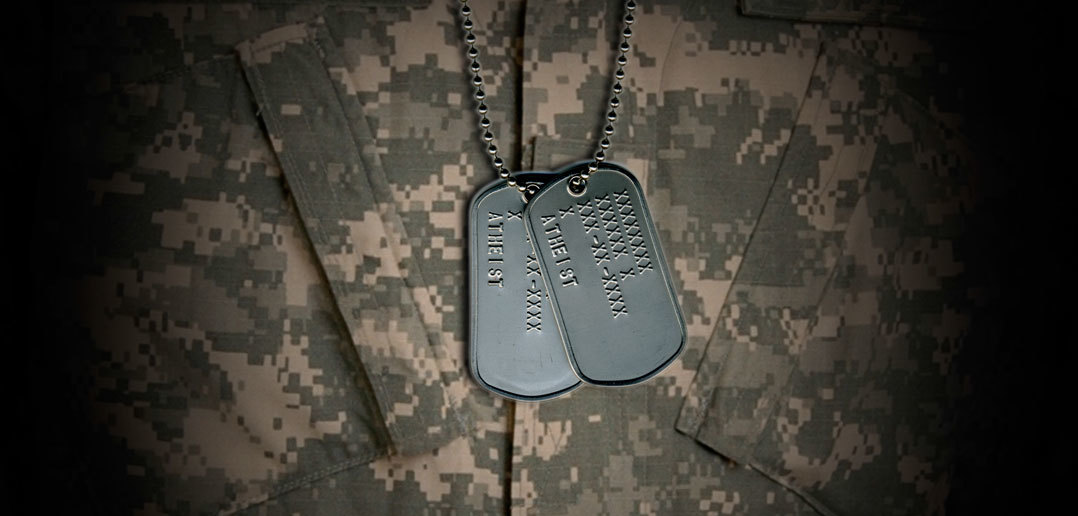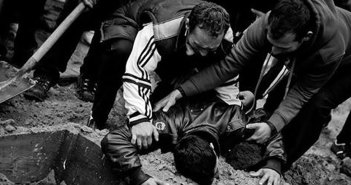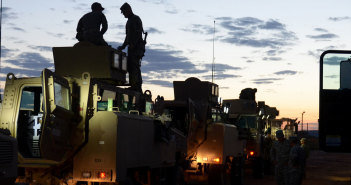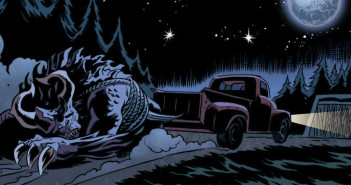The blazing afternoon sun crowned the emerald-green valley of Tagab, Afghanistan, where Adam Jennings patrolled as a Special Forces medical sergeant in the fall of 2007. But as the sun crawled below the horizon, his Humvee’s radio brought distressing news: a nearby patrol led by his close friend (someone he refers to only as Pat), was struck by enemy fire.
Rocket-propelled grenades lit up the black sky and the shattering shots of AK-47s tore through the night air as Jennings raced towards the damaged vehicle with his medical bag in hand. Finding Pat unconscious with a wounded right shoulder, Jennings immediately inserted a plastic tube down his friend’s throat while another medic patched the wound. They were guided only by the lamps mounted on their helmets. After the assault passed and Jennings had done all he could, Pat was transported away for more intensive care. “We sent him off to the hospital, and that was the last I saw of him,” Jennings recalls. Pat died not long after.
Shortly after the soldier’s death the physician’s assistant in Jennings’ battalion found it necessary to remind everyone of both their mortality and morality with the old saw: “There are no atheists in foxholes.” Jennings stared coldly at the man, a set of dog tags hanging around his neck with “atheist” stamped on them. “I never once thought of trying to invoke the power of a god or the need to pray,” he said, remembering the experience. “I didn’t need him telling me that I needed faith when my life is constantly at risk. It was that moment when I decided to start telling the world I was an atheist.”
SECULAR SERVICE
Now a twenty-seven-year-old husband and father of three, religion was never a part of Jennings’ life as he grew up in the small town of Avon, Illinois. He was raised in a home where faith wasn’t pushed on him and grew up to realize he didn’t believe in any kind of a god or supernatural force governing his life. Considering himself a humanist, he doesn’t understand why people would rather enact goodwill for supernatural reward than for the sake of bettering the world around them.
Jennings’ affiliation with the United States military began when he joined the Illinois National Guard as a junior in high school. As his high school graduation approached, he decided to make the military his career and joined the army full time. During basic training he was presented with the option of either attending church services on Sunday morning or taking care of work duties. Jennings decided to give his atheism a rest and take a few hours off for church and bible study every Sunday.
But as Jennings grew older and his intellectual ideals matured, so did his secular beliefs. He began attending the European branch of the University of Maryland, studying computer science and biology. He styled himself a libertarian politically, largely influenced by the writings of Ayn Rand. His rejection of religion, along with the adamant belief in religious freedom, developed rapidly thereafter.
In 2003 he was accepted into the Special Forces, eventually becoming a medical sergeant. But with each passing year in the Army, Jennings couldn’t avoid religious favoritism. He found himself growing tired of all military ceremonies centered around prayer. He believed there was an unhealthy favoritism towards chaplains that in turn alienated him as an atheist. Feeling smothered and drowned out, Jennings began looking for a community that could help him to be free of religion while in the army. The Military Association of Atheists and Freethinkers was the answer he was looking for.
Founded in 1997 by Master Sgt. Kathleen Johnson (now the military director for American Atheists), the MAAF is a leading voice for secular and nontheist concerns in the U.S. military community. The organization hosts members from forty-five states, fifteen countries, and over one hundred military installations and ships. (Army Specialist Jeremy Hall, who made headlines in 2007 for filing a lawsuit against the Department of Defense for discriminating against him as an atheist, counts himself among the MAAF membership.)
Since 2000 the MAAF has been headed by former Army Captain Jason Torpy, who served from 1994-2005 and graduated from West Point with a degree in engineering and management, later earning an MBA from Ohio State University. His family was Catholic growing up, but Torpy had a hard time believing in anything the church taught. By the age of ten his intellectual curiosity led him to explore different practices and beliefs. “I tried a number of Christian, Eastern, and pagan religions,” he recalls, “but none were really compelling.” As with Jennings, Torpy couldn’t ignore religion in the military. “I saw religious favoritism every day,” he says, noting that the many regulations opposing such favoritism were often ignored. “Prayers bookend almost every military ceremony,” he continues. “Standing in formation, forbidden to opt out or even move, service members are forced to listen to fellow uniformed members lead prayers requested by the command—if that’s not showing favoritism, I don’t know what is.”
Epitomizing the intolerance of secularism in the military is the aforementioned cliché: “There are no atheists in foxholes.” The phrase is believed to have been coined during World War II by Lieutenant Colonel William J. Casey, but has also been attributed to the roving journalist Ernie Pyle. No matter the origins, the phrase is an offensive fallacy towards nonbelievers who risk their lives for the United States. “[It’s] untrue and discriminatory,” says Torpy, who recalls a particular event during combat when mortars rained down around him and two other soldiers. Both were atheists alongside him, very much in the foxhole. “It belittles nontheism by implying that our worldview is so precarious as to whither in the face of danger. It’s ridiculous,” Torpy concludes.
This conviction, along with his recognition of an abundance of secular troops, led Torpy to the presidency of the MAAF. Some members are nontheists—individuals who don’t adhere to any religion—while others are strict secularists who champion the U.S. Constitution above anything else. But all of them are U.S. troops, and Torpy believes that their religious freedom should be counted. Since 2000 the MAAF has participated in secular and military events alike, and has been featured by several news and media outlets ranging from the New York Times to The Colbert Report.
The organization is currently sponsoring an anthology of the stories of nontheists and secularists in the military. The concept was pitched and is being put together by Brandon Burton, formerly of the Navy and currently a lead clinical research coordinator at the Center for the Department of Health Research in Great Lakes, Illinois.
Burton was in and out of several Christian churches as a child, as his parents tried to find the right establishment with, as he puts it, “a good message that didn’t make them fall asleep.” But no religion stuck with him, and as he grew up and became introduced to science in the classroom, Burton lost all interest in pursuing religion. But while attending Southern Illinois University, he had a crisis of faith and became a born-again Christian, believing that Jesus Christ intervened in his life to help him acquire a job aiding handicapped students on campus.
Time passed and Burton did what he could to be faithful to Christ, but as he took more classes in college, his beliefs began to shift again. An anthropology course in particular that discussed religion and magic caused a major shakeup. “Religion was not the worship of God. It was simply the general term for a system of beliefs usually involving the worship of supernatural forces or beings,” he said, reflecting fondly on the class.
After college, Burton wanted to travel the world, and the Navy was his vehicle. And on a whole the experience helped confirm his atheism. His very first tour took him to a naval hospital in California where he was assigned to work in the pediatric subspecialty clinic surrounded by the suffering and death inflicted on children with various forms of cancer. His eyes were battered with images of kids in pain, weeping families, and untimely demise. “I understood the hypocrisy of people believing in an all-powerful God,” he recounts.
VOICES OF GOD
Following his time in the Air Force, Luke Dinan began identifying with the MAAF with the hope of joining the effort to protect secularism in the country he had served.
Back in the Air Force, a phrase had been coined in his honor: “Don’t talk religion with Dinan.” It caught on because he was unforgiving in his questions about other people’s religious beliefs. His household had been deeply loyal to a Pentecostal church in northeastern Pennsylvania. Nothing was valued more than religious conviction, and it was ingrained into him at a very young age.
In his early teens, Dinan was among a group of young people herded into a dark room at the church where they were to receive the Holy Ghost, who in turn would grant them the power to speak in tongues (a practice known as glossolalia). The ringleader was the wife of the congregation’s pastor, and she demonstrated her supposed abilities by raving like a maniac in rambling, unintelligible speech. The naïve group watched her, afraid of what would happen to them if they didn’t comply. One by one they pretended to speak a celestial language. “I couldn’t tell who actually believed it, or, like me, just made it up to avoid drawing attention and to cover up the shame that ‘God’ hadn’t seen fit to bless us,” Dinan recalls.
Dinan decided to escape his religious upbringing by joining the Air Force straight out of high school. But his nightmare started all over again during basic training when his instructor persuaded him to attend church every Sunday. It was either that or spend the entire morning cleaning the barracks. “I didn’t know if the instructor was just trying to help us out or if he was hardcore anti-atheism. But he could easily have let us catch up on shining our boots at the bay instead of sitting in church.” But it was more than faking prayers over scrubbing floors—Dinan was forced to choose between being honest or drawing attention to himself as a religious outsider, effectively splitting from the fraternity of faith in the military.
It’s the military’s chaplains that worries Dinan the most. Acting as the stand-in voices of God, these religious figures exist in the armed forces to offer moral and spiritual guidance as well as to attend to religious ceremonies. But every time Dinan has come into contact with chaplains, he’s left wondering what guidance was actually provided. Even more than that, he sees them as ultimately unconstitutional, representing, as he puts it, “fundamental pandering to the Judeo-Christian Right.” Dinan recognizes that there are non-Christian chaplains, but he claims that there is “definite disharmony” towards them. What’s more, he’s disturbed that chaplains achieve official rank through “proselytizing” instead of earning it through years of service: “[Taxpayers] are currently picking up the tab so people who believe in fairy tales can roam around proselytizing and converting.”
An option for funding the chaplaincy without using public money has been offered by Rick Wingrove, a freelance web designer and volunteer lobbyist for American Atheists, who is also a member of the MAAF and a Vietnam veteran. “Those who feel that [chaplains]must be provided should pay for them from their own church coffers,” Wingrove remarks coolly. He believes that “Christian zealotry” has been seeping into the military for years now, and fears that its chaplains are benefiting from it while troops who aren’t interested in religious practices are being marginalized.
Wingrove describes himself as a devout atheist with a deep love for science. He feels that religion inspires irrationality and distorted moral perceptions, a dangerous combination in the armed forces. He still sees his service and the service of all other individuals as a duty to defend the civil freedoms of the United States, of which the freedom of or from religion is a cornerstone. “People can and will believe whatever they want. But in the end, all religion should be opt-in and never opt-out.”
The deeper moral dilemma in the military is the very nature of duty itself. To serve in the armed forces is to acknowledge that one’s life is no longer in one’s own hands and that any mission could bring about the end. With that level of sacrifice, many find themselves in deep emotional dilemmas that cut to the very core of religious faith, and thus necessitate the presence of religious representatives for some if not many soldiers.
Carla Getchell, who calls herself a humanist and an atheist, believes strongly that the emotional turmoil inherent in armed forces service far outweighs her own personal beliefs. A thirty-one-year-old first lieutenant of the Army National Guard and a graduate of the University of Kentucky, Getchell is a proud member of the MAAF as well as a contributor to the organization’s anthology.
Getchell feels that the chaplaincy fills a role that can’t be filled by anyone else in the lives of troops. She fears that without the presence of religious figures, morale would drop among the service members, creating a ripple that would affect the entire military. “Chaplains are responsible for making sure the religious and personal needs of the troops are met,” Getchell says, adding that she believes they represent a caring and nurturing symbol for hardened soldiers.
Burton, the former born-again Christian who is editing the MAAF anthology, falls into the middle of the argument. He recalls a time in the military’s past when chaplains were neutral figures in whom anyone could confide and approach for advice and guidance. But he also fears that such a chaplaincy is long gone, blaming it on the large influx of evangelical Christianity in the country during the 1990s. Burton’s close friend, a former chaplain from what he calls the “Old Corps” who is currently a successful marriage counselor, agrees that the chaplain’s duty of offering help is being replaced with converting troops to Christ.
The darker aspects of the chaplaincy will appear in Burton’s anthology, including one chilling story concerning a six-year-old Iraqi girl who was operated on by the U.S. military after being critically wounded by an improvised explosive device. After two hours of surgery, the girl died. While the medical team stood around the operating table mourning her death, the chaplain on hand said, “Well, it doesn’t matter. She’s going to hell anyway.”
The MAAF under Torpy’s direction has designed a program called “Chaplain Outreach,” in which chaplains may agree to provide fair and equal secular counseling services to all service members, despite differing religious or nontheistic backgrounds. The program has been endorsed by several other secular organizations, including the American Humanist Association, American Ethical Union, Institute of Humanist Studies, and the Secular Coalition for America.
FREEDOM TO, FREEDOM FROM
The MAAF’s position on religion’s presence in the military is clear—all service members should have the freedom and right to participate in religious activity like prayer, just as everyone else should have the right and freedom to abstain from such activity. No secular person or organization believes that anyone should be denied that right, but they do oppose the direct support, be it through money or obligation, of any one belief over another. “The point is not to remove the opportunity for private prayer,” says Torpy, concluding that the problem is that prayers currently intrude upon everyone in the military.
Coercion and obligation are the culprits, creeping up and corrupting the chaplaincy’s assigned tasks. But should military chaplains even have as much influence as they do? Many in the MAAF feel that because the education and training of these spiritual leaders is based entirely upon metaphysical education with no real science, chaplains only treat the religion and not the actual person. This has led many people associated with MAAF to voice support for diverting funds away from the chaplaincy and investing it into a strong team of professional psychiatrists and counselors to help troops in mental and emotional trouble. Taking this idea a step further, Rick Wingrove sees no reason why a strong team of professionally educated and trained counselors couldn’t replace the chaplaincy completely and provide a far better service to the troops.
Brandon Burton, while believing that the removal of the chaplaincy would be best, doesn’t allow himself the comfort of believing that professional counselors would avoid religion. “We would just have a problem with ‘Christian-based counseling’ and all of the religious nonsense would begin again.” Nonetheless, he hopes that a day will come when secularism is restored to the military and religion’s sway within the armed services evaporates. Offering her own take, Carla Getchell worries that troops wouldn’t have the same trust in trained professionals as they would in religious advisors. “Removing [chaplains]would leave a hole that would take too long to fill,” she contends.
Ultimately, the U.S. military is not a spiritual force that fights by the right of, or for, a god. It’s a force that fights to protect the rights of the United States. And to allow religious favoritism and indoctrination in the military corrupts the very notion of why it exists—to stand in defense of everyone’s right to worship what they choose, or worship nothing at all, so long as it brings no harm to anyone else. To allow religious force to overtake the ranks of the very people who risk their blood to safeguard that ideal is insolent to an incalculable degree.
Adam Jennings learned this lesson the hard way. When he returned to the United States for his friend’s funeral, he stood between Pat’s mother and wife during the viewing the night before. As the three figures stood somberly, a slow-moving procession of mourners offered their monotone condolences. “God has a plan,” some would say, while others would whisper, “Everything happens for a reason.”
Jennings wanted to know how the mourners could be so sure. He was, after all, the one who nursed the dying son, husband, and friend. He saw the plan that claimed Pat’s life—the defense of the United States. It’s the same reason why Jennings does what he does. Without promise of divine recognition or salvation, Jennings still puts the uniform on. His death could be tomorrow; it could be decades from tomorrow. He never knows when might be the last time he kisses his wife or hugs his three children. But he continues forward. “I do it to help. I do it to keep America free. I do it for my family, my fellow Americans, and my country,” Jennings concludes, the “atheist”-stamped dog tags still hanging from his neck.
This article was originally published by the Humanist magazine. To view the PDF version of the piece’s original publication, please click here.




